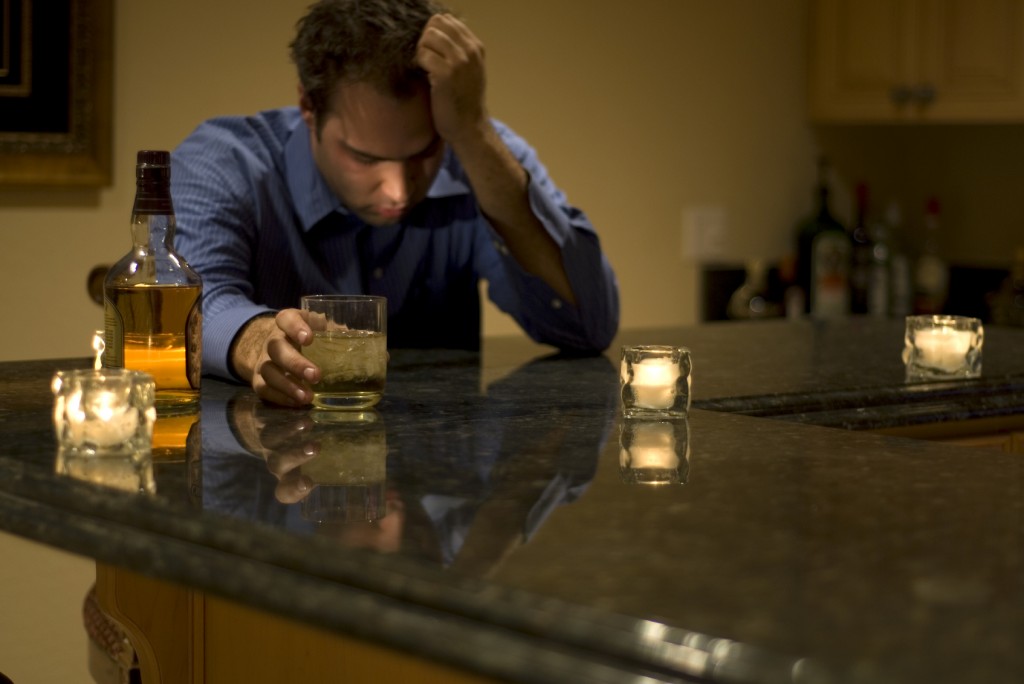Addicted to Alcohol? There is Hope!

by Nirmala Raniga, Founder and Director
Alcoholism is a chronic brain disease that causes compulsive substance use despite harmful consequences. Addiction to alcohol is insidious. It usually starts small but for some people, grows out of control. Alcohol is a legal drug that can produce pleasant effects in smaller amounts but produces dangerous consequences when consumed in higher quantities.
Most people drink alcohol, and do so responsibly. Alcohol being a legal drug, it is socially acceptable when used in moderation. People often drink alcohol during social occasions; it slows down parts of the brain, making you feel relaxed and can mask shyness. However, this loosening of inhibitions that alcohol creates can lead to an inability to think clearly, make good decisions and do various tasks.
For most people, moderate social drinking usually starts out with a cocktail or two at friendly gatherings. Then wine at dinner, or a highball after work are added to the choice of beverages at home, and that’s the end of it. For some, however, these innocent beginnings turn into an addiction that can ruin their health, their home life and their career. Too often, the recklessness resulting from excessive drinking is a leading cause of serious injury and accidental death.
The side effects of too much alcohol are devastating and life-threatening. In one evening of social drinking, an enjoyable time with the relaxing sensations can turn into a series of embarrassing and dangerous effects after consuming higher amounts of alcohol; lack of coordination, slurred speech, flushed skin, the likelihood of falls or accidents, blackouts, possible alcoholic poisoning or the accidental death of the drinker and/or an innocent third party.
Alcoholics fall into two main categories of problem drinkers: alcohol dependence or alcohol abuse – sometimes both.
Alcohol Dependence
About one person in twenty who drinks is dependent on alcohol. Alcohol dependence is the inability to quit drinking, even if the desire to stop is there. People who are dependent on alcohol lose control of their alcohol use, consistently drink more and for longer periods than intended and have developed a high tolerance to the drug. They suffer from withdrawal syndrome after a period of time without a drink and continue drinking no matter what the consequences.

Many people who are dependent on alcohol can hide it from their peers for years, continuing to function in a way that appears normal to the outside world, so long as they have their required number of drinks each day. Left untreated, though, alcohol dependence can cause major problems with friends and family, work, their health, both emotional and physical, the law and money. In addition, people who are drunk and insist on driving cause devastating accidents and loss of innocent lives.
Alcohol Abuse
Similarly, people whose drinking falls into the category of alcohol abuse are unable to control their use of the drug, but for these addicts, their pattern of drinking leads to the failure to fulfill responsibilities at work, home or school and they drink in situations that are physically hazardous. Their families desert them. They lose their jobs. They become financially insolvent. And again, they are at risk of causing accidents and unnecessary death to innocent victims.
Over time, excessive drinking can lead to serious health consequences, including liver damage, brain and nerve damage, high blood pressure and strokes, greater risk of heart disease, impotence, infertility, breast and throat cancer and premature aging to name a few.
Alcohol is the most common cause of preventable birth defects, including fetal alcohol syndrome which means the baby may have physical abnormalities, behaviour problems and other difficulties. For pregnant women, there is no known safe level of drinking. A woman who drinks during pregnancy is more likely to have a miscarriage, to have the baby born too early, to have the baby born dead, or to have other problems. Similarly, if a woman is breastfeeding, alcohol can be passed to her baby through the milk. This may affect the baby’s feeding, its sleep and how it develops.
Addiction to alcohol is a chronic illness that can be treated and cured. Unfortunately, treatment is often complicated by denial and/or a lack of understanding about substance abuse. Addiction to alcohol is fulfilling a need within ourselves. People who chose to over-indulge in intoxicants are searching for something in their lives that will make them feel better. Physiologically our brains are hard- wired to a reward circuitry that provides us with pleasure. We naturally repeat behaviours that give us with the reward or pleasure we want. If the effects of alcohol give us a feeling of confidence, or an increased sense of self-worth, we “logically” reach for another drink.
“Addiction to alcohol is fulfilling a need within ourselves. People who chose to over-indulge in intoxicants are searching for something in their lives that will make them feel better…”
Recovery from this illness requires multiple forms of treatment. Individuals with this condition are prone to relapse. The first step on the road to recovery is recognition of the problem. The second is seeking help to stop drinking. Abruptly stopping alcohol use in a person who is dependent on alcohol can be dangerous. An alcoholic who needs to drink daily should stop their use of alcohol under the supervision of a physician, and may need medication during their withdrawal.
Long-term preventive treatment should begin after the addict recovers from immediate symptoms. This may involve a “drying out” period, in which no alcohol is allowed. Total and lifelong avoidance of alcohol (abstinence) is recommended for most people who go through withdrawal. In addition, therapy and self-help groups provide support and help addicted individuals understand their behavior and motivations.

The Paradise Valley Healing Center (CTC) in Squamish, BC helps people with addictive behaviours to “re-wire” their reward circuitry and create a new memory free from harmful cravings. Dr. Deepak Chopra, partner in the CTC addiction recovery center, says this re-wiring of the nervous system–- called neuroplasticity, enables the brain to reorganize itself so human beings can create new neural pathways through new experiences.
Under the guidance of the professional staff at CTC, emotional pain can be identified and experienced with safety and support not previously possible. This re-wiring can produce new empowering, liberating experiences that don’t require alcohol to bring about pleasure. New choices that nourish the mind, body and spirit, can be revealed, thus bringing about healing and transformation.
The Paradise Valley Healing Center offers the first truly holistic addiction recovery method in North America. The healing team at CTC combines the latest breakthroughs in modern Western medicine with the healing arts of the East. The goal of the holistic health care experts at CTC is to restore balance and wholeness in the lives of the people who come for help.
Guests at the Center have an opportunity to become free of the initial magnet that drew them to alcohol abuse and to discover the joy of a non-addicted life. Deepak Chopra, M.D. and David Simon, M.D., co-founders of the Chopra Center for Wellbeing in Carlsbad, California, developed a recovery method– Freedom from Addiction, that is unlike any other. Four week and six week residential programs offer individuals intensive, personalized treatment that address the deeper issues at the root of addiction and help individuals identify and release stored emotional pain, destructive thought-patterns and life-damaging beliefs. These are replaced with more nurturing, self-empowering behaviors and experiences that offer individuals a strong foundation of lasting recovery and help them to build a balanced, addiction-free life.
Learn more about the programs we offer at Paradise Valley Healing Center.
